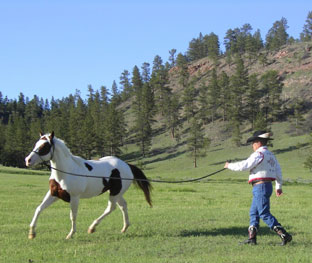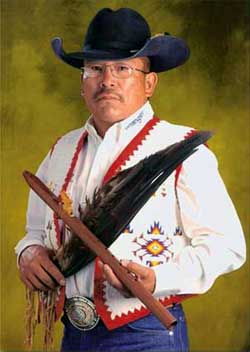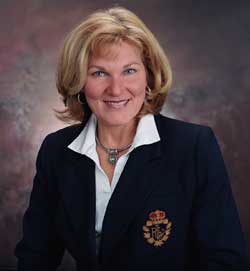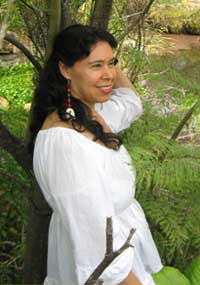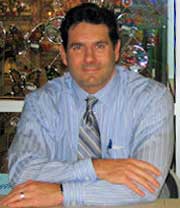Phillip Whiteman, Jr., a nationally-known cultural consultant, storyteller, Champion Grass Dancer, horse-trainer and rodeo saddle bronc champ will present a day-long workshop on employing Native American spiritual philosophy and practices to everyday life at the Nelson Healing Center in Sturgeon Bay. Phillip’s personal and professional objective is to promote cultural integrity throughout Indian country and the world.
His father is Chief of the Northern Cheyenne Council of 44 and his mother the late Florence Whiteman was a Cheyenne Warrior Woman of the Elk Scraper Society. Phillip belongs to the Kit Fox Warrior Society and Omaha Dancing Society. He believes strongly in his spiritual ways and incorporates them into every aspect of living.
Phillip’s reputation as a cultural consultant and presenter has spread far over the years. He recently served as Northern Cheyenne Culture and Language Consultant for Steven Speilberg during the filming of “Into the West.” His workshop presentations include traditional story-telling and songs that share a powerful and inspirational message of hope. Recently, His first CD, “Spirit Seeker – Stories and Songs for the Spirit,” has received national critical acclaim.
Phillip has been a familiar face in the powwow arena and the “winners circle” since he was a small boy. He dances the “Old Style” grass dance. His dancing career has taken him from the powwow arena to the Broadway stage in New York City and he has danced for President Clinton and Senator Campbell’s Inaugurations and in countries throughout the world.
With his deep understanding of Native American culture and traditions, his connection to horses and his gift of communicating with people, Phillip first developed the “Medicine Wheel Model to Natural Horsemanship” as a natural and spiritual approach to a system that once favored domination as a rule. Long before the horse whisperers of today, Plains Indians have been recognized for their seemingly-innate mastery of effortless communication with horses.
“Society teaches us that we have to dominate, and overpower the horse to teach it,” Phillip states. ”But my traditions and culture, and my understanding of the horse teach me that by working with the horse’s spirit, and believing that we are one, the horse will do what I ask.”
As a recognized horse trainer and a holistic thinker, it wasn’t long before Phillip realized that the model he had developed for horses really applies to all of life – including our interactions with each other. The very same approach of inferiority and superiority that damages the spirits of horses does the same to our relationships with other people, “and you must learn to interact with their spirit in a non-threatening and non-confrontational manner.” Thus, he began teaching people how to use the Medicine Wheel Model for personal growth.
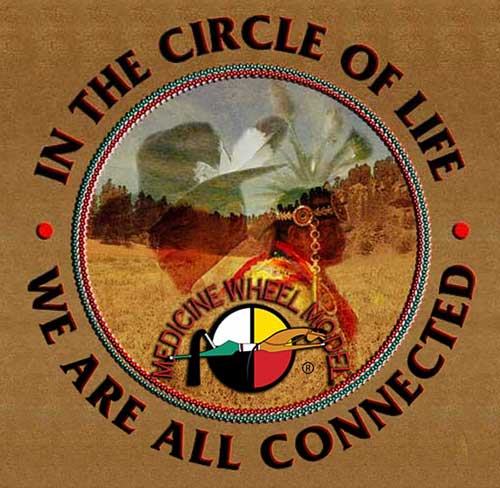 The Model is fundamentally simple, based on the premise that everything is part of a circle and within that circle all things are equal. According to Whiteman, the Medicine Wheel teaches us that within the circle there are four quadrants which represent the four directions, the four seasons, the four colors of men, the animals that come from the land, water, sky and below the earth, and the four stages of life.
The Model is fundamentally simple, based on the premise that everything is part of a circle and within that circle all things are equal. According to Whiteman, the Medicine Wheel teaches us that within the circle there are four quadrants which represent the four directions, the four seasons, the four colors of men, the animals that come from the land, water, sky and below the earth, and the four stages of life.
“It is much more than just working with horses, Phillip explains. “It is a simple philosophy for life and shows the connection between man, animal and all living things.”
On Saturday, April 17 Phillip Whiteman, Jr. will teach a limited number of individuals the Medicine Wheel Model in a full-day workshop from 9 am – 5 pm at the Nelson Healing Center. Registration is required and the cost is $50. Lunch is included. Call 920.818.0045 (local calls do not require the area code) to register or learn more on-line at NelsonHealingCenter.com.
“Mitakuye oyasin is Lakota for ‘we are all connected or related.’ Phillip’s Medicine Wheel Model is grounded in this philosophy, teaching a way of life. As our world is becoming more global, all of us as human beings are challenged with opening our minds and hearts to think differently – circular and in unity. Phillip demonstrates that the spirit of sunka wakan (the sacred horse) teaches us to be better human beings.” – Lori Lea Pourier (Oglala Lakota), President First Peoples Fund.

